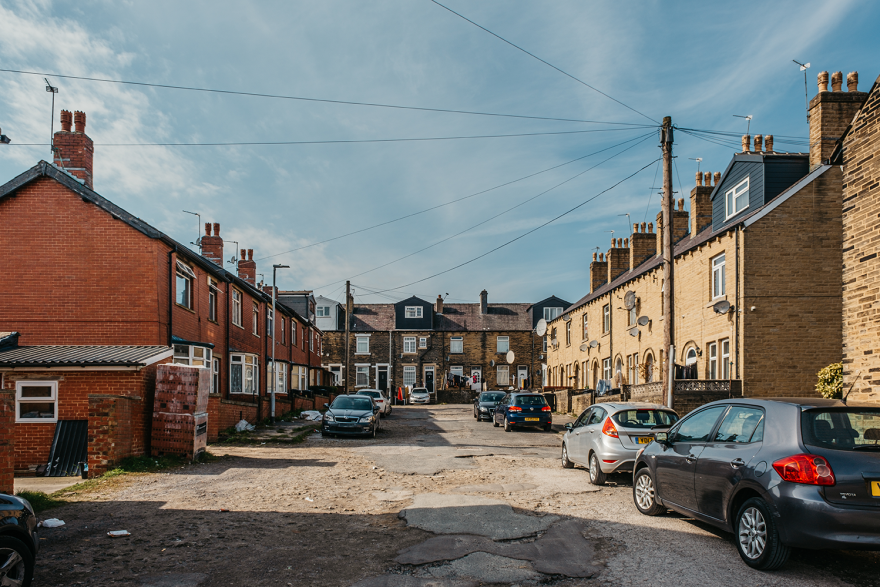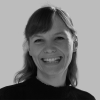Who is and who is not considered deserving of welfare services? This is one of the questions the research project Migrants and solidarities: Negotiating deservingness in welfare micropublics (Solidarities) explores.
The project conducted six case studies across Sweden, Denmark, and the United Kingdom to understand how deservingness is negotiated and how different forms of solidarities are formed in encounters between migrants, including asylum seekers, welfare service providers, and third sector actors.
“We've gained new insights into the dynamics and power asymmetries in relation to the contested notion of deservingness. From previous research, we know fairly well that perceptions of deservingness are closely related to age, gender, and race. What we wanted to do differently was not only look at attitudes, but actual practices. How does this work out in actual encounters between migrants and frontline workers and advocates,” says Mette Louise Berg, Professor of Migration and Diaspora Studies at the Social Research Institute of University College London.
Increasingly hostile migration policies
Berg is the principal investigator for the Solidarities project which was active from 2020 to 2025. The research took place in a particularly interesting moment in time. It started amid the Covid-19 pandemic and for example one focus group of the project, elderly Pakistani migrants in Denmark, were particularly vulnerable during the lockdowns. Then the response to the war in Ukraine early 2022 raised new questions about deservingness, welcome, and solidarity in all three countries.
“The political rhetoric around migrants, asylum, and refugees was harsh and hostile in all three countries and we also saw quite dramatic policy interventions during the research project period. In Sweden, for example, we saw a radical transformation from a comparatively migrant friendly country to a very restrictive country with the ambition to become one of the most restrictive countries in the European Union. A climate of insecurity was taking hold in Sweden due to these policy changes, not just for migrants, but also for interlocutors in welfare. In Denmark, Syrian refugees were at risk of having their protection status revoked because of changes in Danish legislation at the time of our research,” Berg says.
Tensions between policy levels
At the same time, researchers observed solidarity and contestation of hostile policies from individuals who challenged both the rhetoric surrounding migration and national legislation at the local level.
“Our findings show that notions of deservingness are constantly being renegotiated in welfare encounters. We certainly saw a disconnect between national politics and discourse, and the local level where people meet and relate to each other as human beings rather than flat stereotypes. We noticed, for example, that central government policies were implemented in different ways within local authorities and municipalities,” says Berg.
As the environment became more hostile to migrants in the three countries, researchers also observed that civil society and third sector organisations stepped up in solidarity with migrants.
“This research has opened spaces for reflections on the role of third sector practitioners and volunteers and their dilemmas related to national politics. We saw debates among practitioners and volunteers about their roles: Do they just step in to fill the gaps in support, or do they try to push back against increasingly harsh policies? Should they do more political campaigning advocacy work, or try to create counter publics and alternative structures? Supporting the migrants at an immediate level doesn’t change larger structures unfortunately.”
Housing challenges
Dispersal housing for people in the asylum system is a highly politically contested subject in the UK due to a national housing shortage.
“The provision of dispersal housing has largely been privatized, and there is a strong incentive for the private providers to disperse people to places with cheap rental accommodation which is often in small towns and rural areas with high rates of deprivation and above average rates of unemployment. Local authorities have very little say over who, where, or how many are being settled in their areas. It would be really good for national policy makers to listen more to local authorities and build policies based on their insights,” Berg says.

The project deliberately set out to do research in non-metropolitan or provincial areas and towns.
“A lot of research has already been done on the big global, multicultural cities. But as migrants and those seeking asylum are increasingly moving to or dispersed to smaller towns and rural areas, they are often removed and isolated from ethnic networks and support organisations, which creates new challenges for them as well as those who support them. It can be about simple things like where can you buy food that is familiar to you when you are dispersed to a small village with expensive public transport,” says Berg.
Creative research dissemination through exhibitions
To engage a wider audience beyond those who read academic articles, the researchers co-created exhibitions in Denmark and the UK together with people who had lived experiences of the asylum systems.
In Denmark a group of Syrian refugee artists co-created a two-week exhibition festival called Fast grund under fødderne? (eng. On solid ground?), which included discussions and interactive events with themes like solidarity, deservingness, neighbourliness, community, racism, hopes and fears for the future. In the UK, the research team created a pop-up exhibition in collaboration with co-researchers with lived experience of the asylum system and architect Nadia Mendez Guevara. My Name Is Not 'Asylum Seeker' focused on the challenges of putting life on hold while waiting for an asylum decision with no right to work in the meantime.
“The exhibition was also about spaces of hope, conviviality, and local connections that asylum seekers participate in. I hope the two exhibitions have contributed to less charged, less polarised discussions and more nuanced understandings, including that people who seek asylum are humans, not just numbers. A push to reframe the narrative around migration and asylum is needed in all three countries,” says Mette Louise Berg.
Read more: Solidarities Research Project
Migrants and Solidarities online gallery
Film by Amr Hatem and Line Grüner, part of the exhibition On Solid Ground? exhibited in Aarhus, Denmark, March 2023: Thresholds of Belonging



